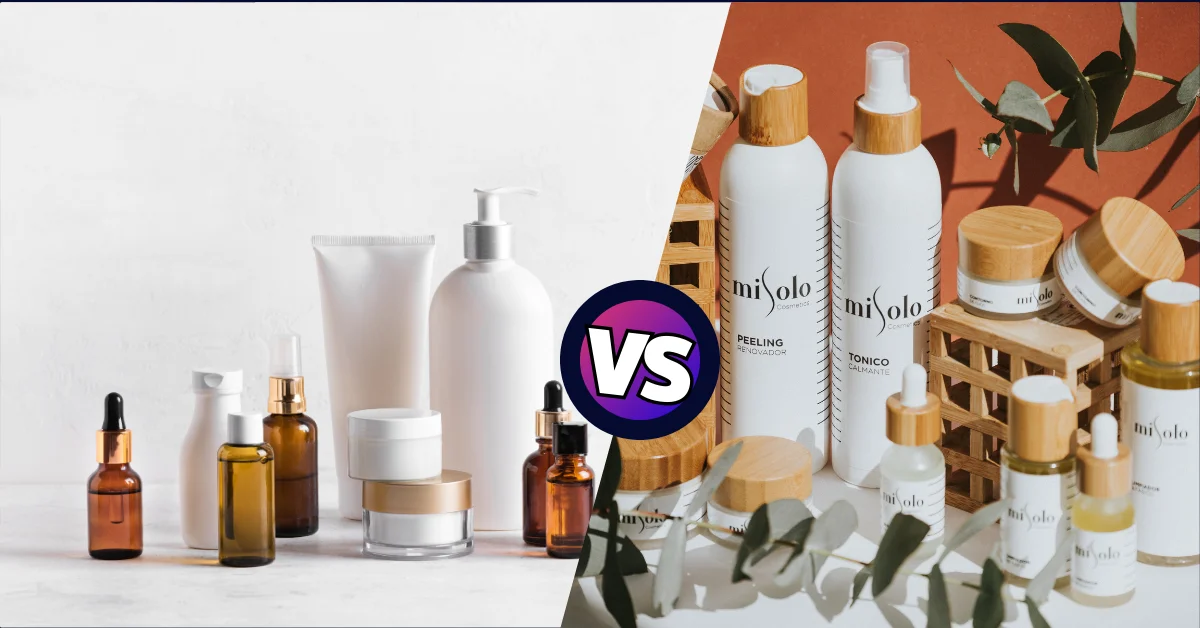Have you ever picked up a product and wondered whether it’s unique to that brand or if other companies sell the same item with different packaging? In a world where branding and customization are paramount, understanding the nuances of white label vs private label can be crucial for entrepreneurs and businesses aiming to optimize their product offerings and market strategies. This article dives deep into the definitions, differences, and benefits of white labeling and private labeling, providing a comprehensive guide for anyone looking to use these strategies in their business.
Table of Contents
What is White Label vs Private Label?
Understanding the concepts of white label vs private label is crucial for any business looking to streamline its product offerings. Both terms refer to different approaches in product branding and distribution, yet they offer unique benefits and challenges. To understand the concept of white label vs private label, it’s essential to first understand each term individually.
What is a White Label Product?

A white label product is manufactured by one company and sold to various other companies, which then rebrand the product with their own logo and marketing materials. The key characteristic of white label products is that they are typically generic, allowing multiple companies to sell the same product under different brand names. This model enables companies to offer a wide range of products without having to invest in product development or manufacturing.
Benefits of White Labeling
Here are some benefits of white labeling:
- Cost-Effective: White label products eliminate the need for significant investment in product development and manufacturing.
- Quick Market Entry: Businesses can quickly introduce new products to the market by rebranding existing white label products.
- Scalability: White labeling allows businesses to expand their product offerings without the complexities of production and supply chain management.
- Reduced Risk: Lower investment and faster time-to-market reduce the financial risk associated with launching new products.
- Broad Product Range: White labeling enables businesses to offer a wide variety of products under their brand, enhancing customer choice and satisfaction.
- Focus on Branding and Marketing: Since the manufacturing is handled by another company, businesses can concentrate more on branding and marketing strategies to reach their target audience effectively.
Drawbacks of White Label
- Dependence on Supplier: Businesses are heavily reliant on the supplier for product quality and availability, which can pose risks if the supplier faces issues.
- Brand Identity Challenges: With multiple brands selling the same product, it can be challenging to establish a unique brand identity and build customer loyalty.
- Limited Customization: Since white label products are generic, businesses have limited options for customization, which can restrict brand differentiation.
What is a Private Label Product?

Private labeling, on the other hand, involves products that are manufactured by one company but sold exclusively by another company under its own brand name. Private label products are often customized to some extent to meet the specific needs or preferences of the retailer or brand owner. This model provides businesses with more control over product specifications, quality, and branding.
Benefits of Private Label
Here are some benefits of Private label:
- Brand Exclusivity: Private label products are unique to the retailer, providing a competitive edge and helping to build a strong brand identity.
- Customization: Businesses have greater control over product features, quality, and design, allowing them to cater to specific customer preferences.
- Customer Loyalty: Unique products can foster customer loyalty and repeat business, as customers cannot find the same products elsewhere.
- Control Over Supply Chain: With private labeling, businesses can have more oversight and control over their supply chain processes, ensuring better quality management.
Drawbacks of Private Label
- Higher Upfront Costs: Private labeling often requires a significant investment in product development, manufacturing, and customization, leading to higher upfront costs.
- Longer Time-to-Market: Developing and manufacturing customized products can take longer, delaying the time-to-market compared to white label products.
- Market Acceptance: There is a risk that the market may not accept the new private label products, leading to potential financial losses.
The Difference Between White Label and Private Label
Exploring the difference between white label and private label products can help you make informed business decisions. Let’s understand the crucial differences for crafting an effective market strategy.
1. Customization and Control
The primary difference between white label and private label products is the level of customization and control. White label products offer minimal customization, allowing for quick and easy rebranding by multiple companies. In contrast, private label products are tailored specifically to the retailer’s requirements, providing greater control over product features, quality, and branding.
2. Market Differentiation
White label products can be sold by multiple companies, leading to increased market competition. However, private label products are unique to the retailer, helping them stand out in the market and build a distinct brand identity. This exclusivity can be a significant advantage for businesses looking to create a loyal customer base.
3. Investment and Risk
White labeling requires less investment in product development and manufacturing, making it a lower-risk option for businesses. Companies can quickly add new products to their lineup without significant financial commitment. On the other hand, private labeling often involves higher upfront costs and investment in product development, but it offers greater potential for brand differentiation and customer loyalty.
Similarities Between Private Labeling and White Labeling
Despite of the difference between white label and private label, they share several similarities. Both models involve outsourcing production, which can lead to cost savings and faster time-to-market, making them attractive options for businesses aiming to optimize their product strategies. Let’s understand them in detail.
1. Outsourced Manufacturing
Both private labeling and white labeling involve outsourcing the manufacturing process to third-party producers. This allows businesses to utilize existing manufacturing capabilities without needing to invest in their own production facilities.
2. Branding Opportunities
In both models, companies have the opportunity to market products under their own brand names. This helps businesses build and reinforce their brand identity by offering a consistent range of products with their branding.
3. Cost savings

Both private and white label products can lead to significant cost savings. By not having to manage the manufacturing process, companies can reduce overhead costs associated with production, labor, and equipment.
4. Time Efficiency
Utilizing private or white label products allows businesses to bring products to market faster than if they had to develop and manufacture the products themselves. This can be especially advantageous in industries where speed to market is crucial.
Private Label vs White Label Examples
Here are some examples of Private and White labeling:
Private Label Example:
A popular example of private labeling is the Kirkland Signature brand, owned by Costco. Costco partners with manufacturers to produce a wide range of products under the Kirkland Signature label, from food and beverages to clothing and household items. These products are exclusive to Costco, offering customers high-quality items at competitive prices.
White Label Example:
An example of white labeling can be found in the tech industry, where companies like Alibaba offer generic electronic products that can be rebranded and sold by various businesses. For instance, many companies sell rebranded versions of generic smartphones, tablets, and other electronics sourced from manufacturers in China.
Key Considerations When Choosing Between White Label and Private Label

When deciding between white label and private label products, businesses should consider several factors to determine which model best suits their needs and goals.
1. Brand Strategy
Businesses aiming to build a unique brand identity and offer exclusive products may find private labeling more suitable. Private label products allow for greater customization and control, helping businesses create a distinct market presence.
2. Budget and Resources
White labeling is often a more cost-effective option, requiring less investment in product development and manufacturing. This model is ideal for businesses with limited budgets or those looking to minimize financial risk. Blinkstore stands out as a premier choice in this regard, offering a wide range of white label products that businesses can rebrand and sell without the hefty upfront costs associated with private labeling.
3. Market Competition
The level of market competition can also influence the decision. Private label products offer exclusivity, helping businesses stand out in a crowded market. In contrast, white label products may face more competition since they are sold by multiple companies.
4. Time-to-Market
In fast-paced industries where trends change rapidly, the quick market entry offered by white labeling can be a significant advantage. Conversely, if you have the time to develop unique products, private labeling can yield long-term benefits through customer loyalty and brand differentiation.
Conclusion
Understanding the distinctions between white label and private label products is essential for businesses aiming to optimize their market strategies. White label products offer cost-effective, quick market entry with minimal customization, while private label products provide exclusivity and higher profit margins through tailored specifications. Both models have unique benefits and drawbacks, making them suitable for different business goals. By carefully considering factors like brand strategy, budget, market competition, and time-to-market, businesses can effectively leverage these models to enhance their product offerings, build a strong brand identity, and achieve sustained growth.
FAQs on White Label Vs Private Label
What factors should businesses consider when choosing between white label and private label products?
Businesses should consider their brand strategy, budget and resources, market competition, and time-to-market needs when deciding between white label and private label products.
Are there any risks associated with white labeling?
The primary risks include reliance on the supplier for product quality and availability, potential market saturation with similar products, and challenges in differentiating the brand.
How can Blinkstore help with white labeling?
Blinkstore provides a wide range of high-quality white label products that businesses can easily rebrand and sell, offering a cost-effective and efficient way to expand product lines without significant upfront investment.
Why might a business choose private labeling over white labeling?
Businesses may choose private labeling for brand exclusivity, greater control over product features and quality, the ability to cater to specific customer preferences, and the potential to build stronger customer loyalty.
